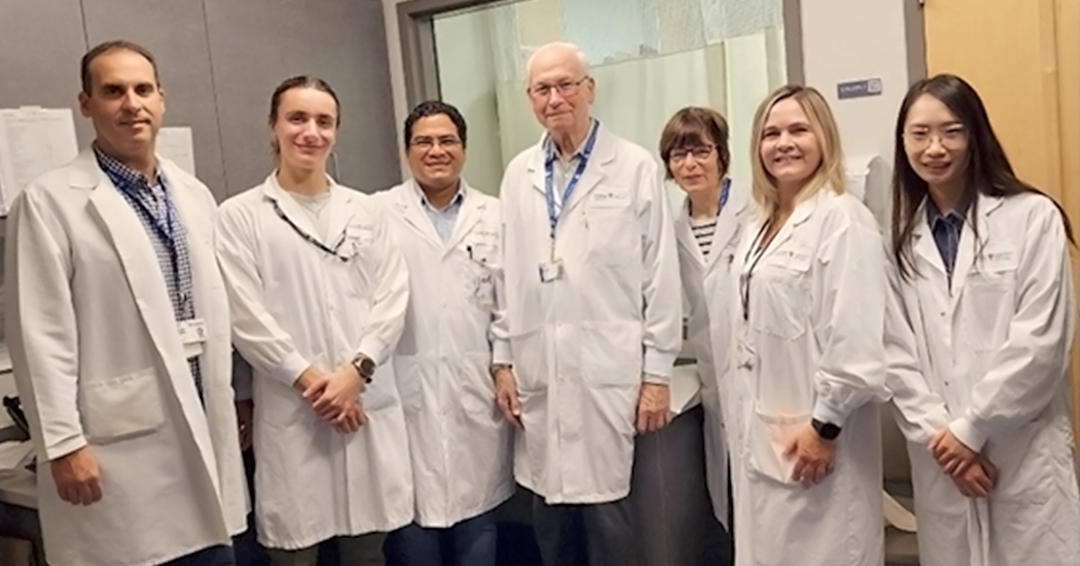
A clinical trial run by Sergio Burgos’s research team and colleagues at the RI-MUHC seeks to learn more about the impact of dairy products on type 2 diabetes
World Diabetes Day, marked on November 14 each year, was created to confront diabetes as a critical global health issue and to focus on the prevention and treatment of diabetes and diabetes-related complications. At the RI-MUHC, research groups are working to understand, prevent and treat diabetes in all its forms.
Leading one such research group, Sergio Burgos, PhD, is an investigator in the Metabolic Disorders and Complications Program of the RI-MUHC. Prof. Burgos’s research focuses on the role of animal-sourced protein foods on human nutrition and cardiometabolic health. His research group recently showed that dairy products are an important source of high quality protein for Canadians, contributing substantially to intakes of shortfall nutrients calcium and vitamin D, but also saturated fat, a nutrient to limit. His group is also interested in understanding the impact of dairy foods on cardiometabolic health.
Prof. Burgos launched a new clinical trial to study the impact of dairy products (milk, cheese, and yogurt) with differing fat content on the body’s response to insulin, specifically in people with obesity and prediabetes. One early sign of a person’s predisposition to diabetes is lower sensitivity to the action of insulin, called insulin resistance. The most common cause of insulin resistance is obesity.
Diet is an important factor influencing diabetes risk. Recent epidemiological research has suggested that dairy products may reduce the risk of developing type 2 diabetes. However, conclusive evidence from randomized controlled trials is lacking.
“In our ongoing study, volunteers are first assessed for prediabetes and overall health,” says Prof. Burgos. “If eligible, they can participate in the study in one of two ways. Some participants are asked to consume two to three servings of reduced or regular fat dairy products each day. Other participants are asked to limit their intake of dairy products. Each person’s participation in the study lasts for four months.”
The research team measures the participant’s glucose tolerance and insulin sensitivity before and after the intervention. The team also collects information on physical activity, dietary habits and body composition. Participants are closely monitored by the team of researchers, physicians, nurses and dietitians. They also receive all their medical and research results.
“Our goal is to provide high quality information about the effect of dairy product consumption on insulin sensitivity in people with obesity and prediabetes,” says Sergio Burgos.
“This information will help inform dietary guidance for healthy eating in Canada,” says Dr. Errol Marliss, the study’s senior physician. “This is an exciting sequel to our research group’s long history in contributing to our understanding of glucose and protein metabolism in obesity and type 2 diabetes.”
“We are so grateful to our research volunteers, who also benefit from their participation by learning more about their risk for developing diabetes,” adds the study research coordinator Catherine Vanstone. “We are still seeking participants who are 30-65 years old, who are overweight or have obesity, and who have a family history of type 2 diabetes. The details of our study are publicly available for anyone who is interested in participating, and we are very happy when people contact our team with their questions.”
About the trial
Learn more about the trial: Clinical Trial NCT05421390: Effect of Dairy Products on Insulin Resistance in Overweight and Obese Individuals With Prediabetes
